Get ready for kindergarten! In this post, learn tips on how to prep your child for kindergarten, and be sure to download our free, printable Kindergarten Readiness Checklist!
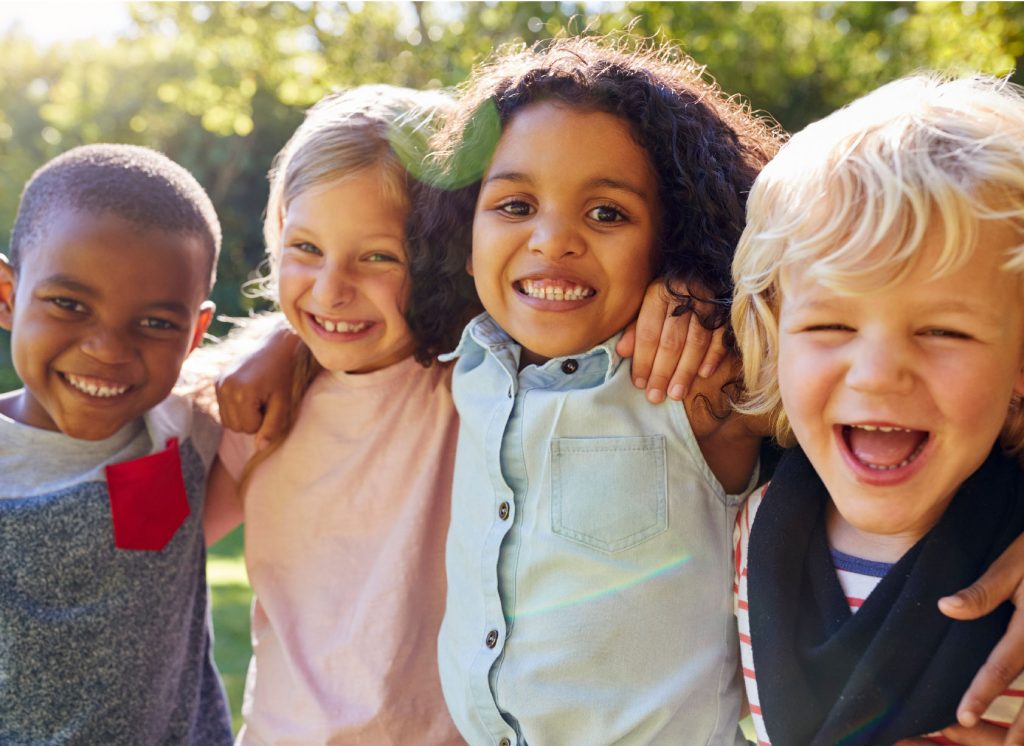
Preparing for Kindergarten
Starting kindergarten is an exciting milestone for both you and your child. It is a year of new experiences. Many children begin kindergarten in the fall of the calendar year they turn five. However, there is more to consider than just age when determining if your child is ready for kindergarten.
Parents generally have these common questions:
Keep reading or click on a specific question to jump to the topic.
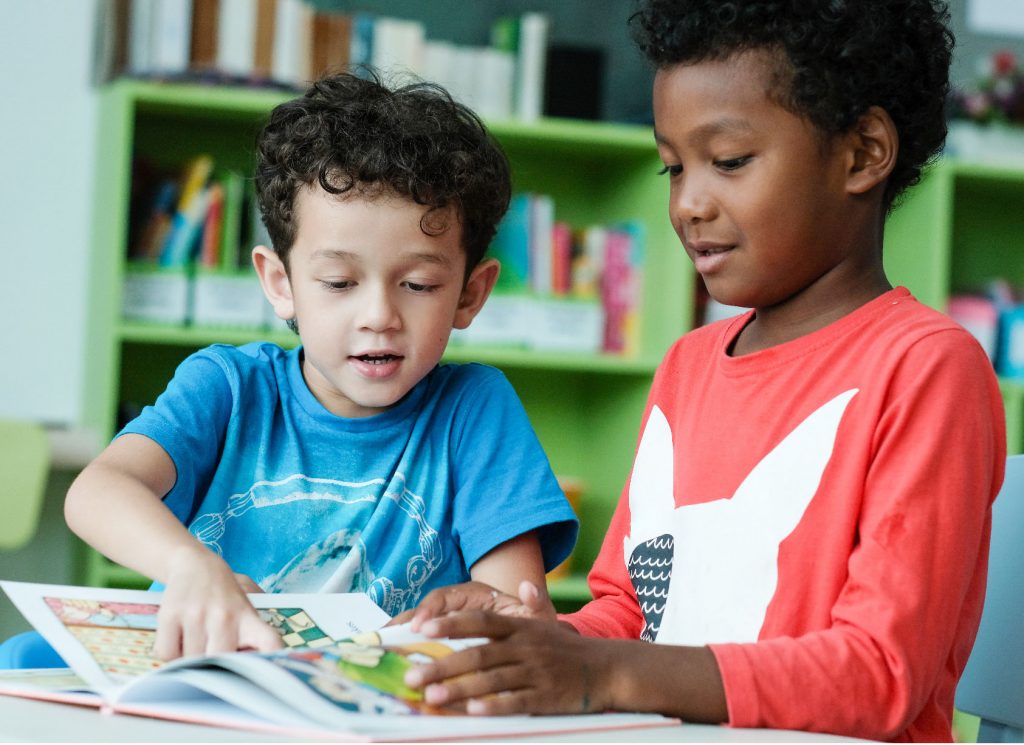
If you also have these questions, we are glad you’re here! Keep reading for the answers; then download our free Kindergarten Readiness Checklist, along with a collection of ways to help your child get ready for kindergarten.
Is my child ready for kindergarten?
It is common to think age and academic skills determine a child’s readiness for kindergarten, but there are other things to consider as well, such as the child’s interest.
A child’s desire to learn and experience new things is a good sign that your child is ready. Does your child ask questions, make observations, and express interest in the world around him or her?
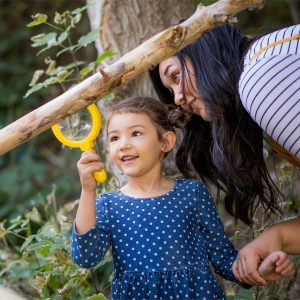
Along with an eagerness to learn should be a readiness to listen to others and focus on a task. Kindergartners commonly have shorter attention spans than older children. This is normal and acceptable. They learn best through hands-on experiences like building, experimenting, storytelling, moving, and playing.
Kindergartners are new to “sit-down work” and do best with brief, focused lessons. As your kindergarten’s year progresses, his or her attention span will increase, but every child is unique and develops at his or her own pace. Stay positive and patient with your child to help him or her enjoy learning as he or she grows in maturity!
Engaging and colorful books like our Preschool or Kindergarten Prep course books are a good introduction to this type of learning.
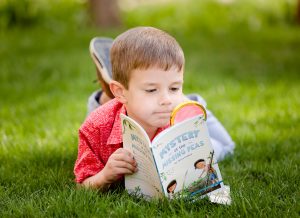
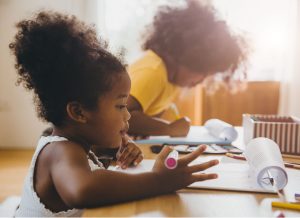
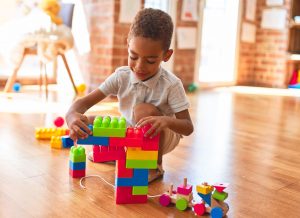
What skills should my child know before kindergarten?
Children entering kindergarten should have some experience with the following six skill areas:
- Language and communication
- Reading and writing
- Math and reasoning
- Social and emotional
- Fine and gross motor
- Independence
Download this Kindergarten Readiness Checklist to help you decide if your child is ready. Children do not need to master all the items on the checklist before entering kindergarten. Rather, use this list as a guide to evaluate your child’s exposure and growth in each of the categories.
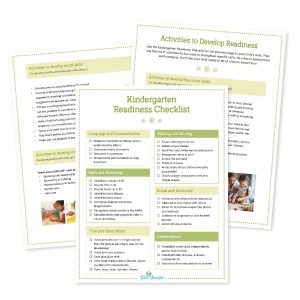
How can I help my child get ready for kindergarten?
One of the beauties of homeschooling is that the transition from preschool to kindergarten is pretty smooth! We’ve compiled a list of activities you can do to help your child prepare for kindergarten.
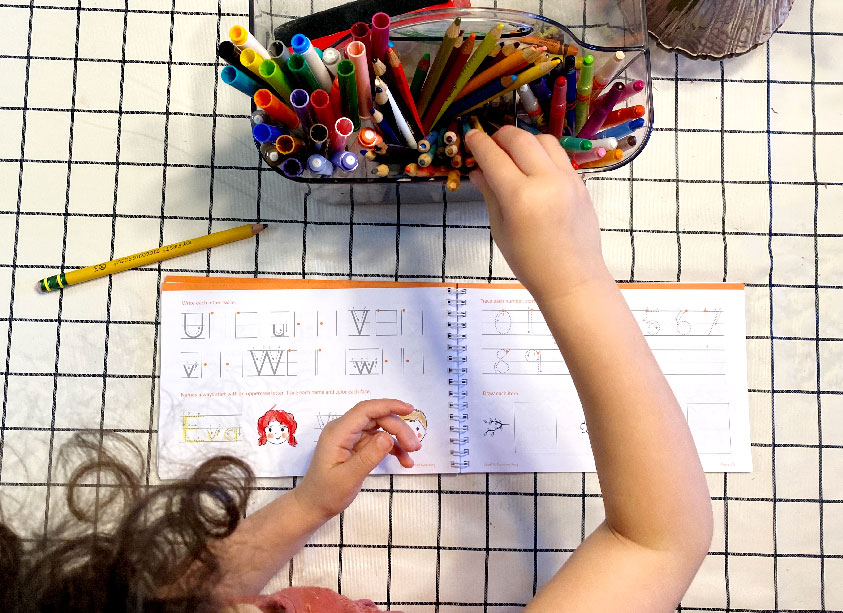
Activities to develop fine-motor skills
(finger and hand coordination, as well as strength for writing)
- Use prepared instant pudding, sand, paint, or mud. Spread on a cookie sheet and practice writing and drawing.
- Draw with chalk on the sidewalk or driveway.
- Make collages from junk mail by cutting up and pasting the images on paper.
- Cut letters out of sandpaper for your child to feel with his or her fingers. Lay paper over the letters and rub the side of a crayon over the paper. Watch the letters appear!
- Make a “writing tool box.” Fill it with paper, crayons, pencils, pens, markers, scissors, glue, stamps, stickers, and more.
- Use Doodles & Pre-Writing for Littles to practice writing strokes.
- Cook and bake with your child, letting him or her stir, crush, and mash ingredients.
- Set up a “building tool box.” Fill it with small tools for screws, nuts, and bolts.
- Use your child’s clothes or dolls to practice buttoning, zipping, tying, and snapping.
- Build with small connecting blocks.
- Create with beads, string, stamps, paint, dough, scissors, glue, and more.
- Find more craft ideas on our blog or in our Creative Arts & Crafts Notebook.
- Put together puzzles.

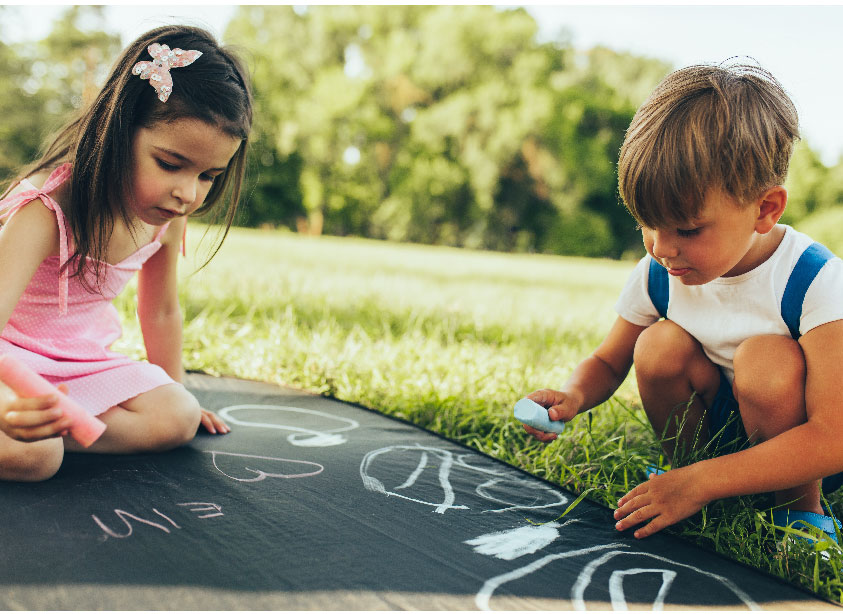
Activities to develop social skills
(positive relationships with others)
- Provide small and large playgroup opportunities with other children so your child experiences meeting and interacting with new kids. Ideas: local storytimes, neighborhood playgroups, cooperatives, etc.
- Provide one-on-one playtime with a friend.
- If there is a disagreement between children, give them time to see if they can solve the problem in a positive way before stepping in. If they need your assistance, be careful not to embarrass any of the children. Demonstrate and explain appropriate behavior, as well as why it’s a more effective way to work out their differences.
- Praise your child for pleasant behavior towards others as often as possible. It encourages your child to do it even more!
- Make a habit of using manners in your home. Use words and phrases such as please, thank you, you’re welcome, can I help you, excuse me, may I use your ___, and I’m sorry.
- Teach your child how to share things with others. A child learns from example.
- Play board games as a family to teach proper behavior for winning and losing.
- Make and use puppets or pretend-play different situations.

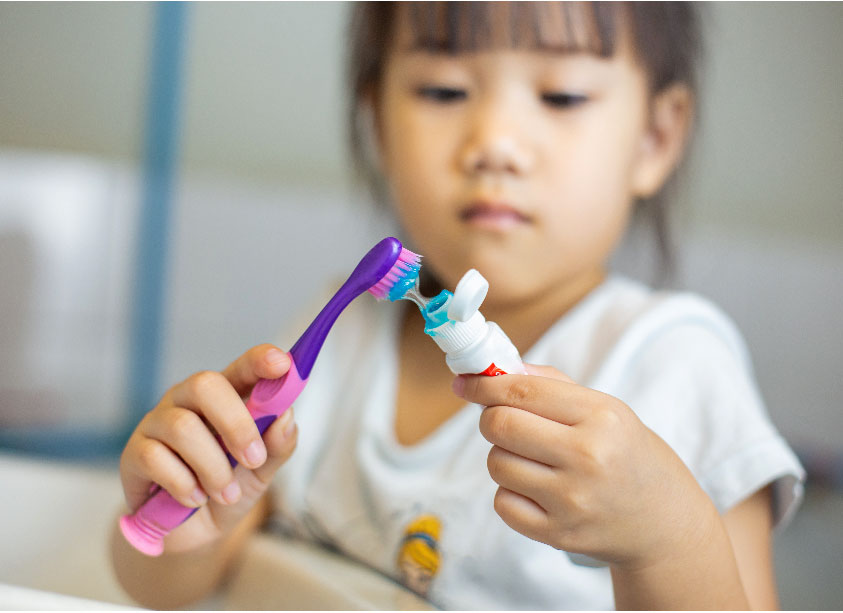
Activities to develop independent living skills
(daily self-help and responsibility skills)
- Teach your child self-care skills:
- Dressing and undressing
- Showering or bathing
- Handwashing and nose blowing
- Dental care
- Hair care
- Teach your child how to do simple chores:
- Setting and clearing the dinner table
- Emptying and filling the dishwasher
- Sweeping and vacuuming
- Wiping spills
- Dusting
- Taking out the trash
- Caring for pets
- Picking up toys
- Folding clothes
- Making the bed

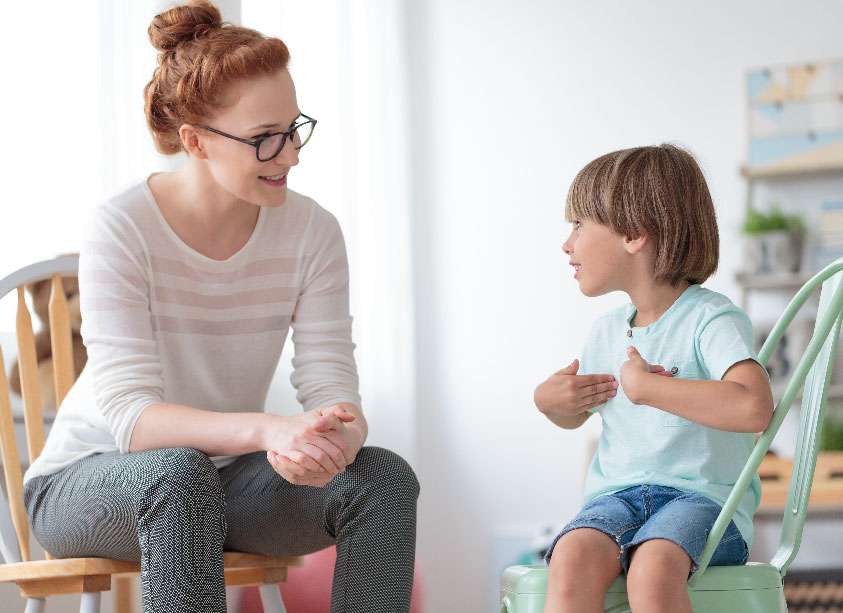
Activities to develop language skills
(listening, understanding, and responding)
- Use a large, descriptive vocabulary to talk about the things your child sees and does.
- Encourage your child to ask questions, and then help him or her discover the answers.
- Ask your child about his or her feelings, and share your feelings too.
- Give your child directions to follow. Start with two-step directions.
- Read, read, and read together! Books build vocabulary, experience, comprehension, attention span, and relationships. It is precious time spent with your child.
- Play guessing games like “I Spy” to practice reasoning and problem-solving skills.
- Read poetry and sing songs with your child to expose your child to rhyme and rhythm. Check out these poetry blog posts for more ideas and free downloads.
- Play an imitation game where the child does or says what you do or say.
- Listen to your child with the same attentiveness that you expect from him or her.
- Have your child retell a story you have read to him or her.
- Sequence 3–5 pictures in order of events.
- Host a poetry party using Poetry Parties for Littles–Insects and Spiders.
- Play any kind of memory game.
- Talk about daily tasks in detail as you do them.

Download our Kindergarten Readiness Checklist for a list of fun ideas in the following areas of early childhood development:
- Language and communication
- Reading and writing
- Math and reasoning
- Social and emotional
- Fine and gross motor
- Independence
Should I wait a year for my child to begin kindergarten?
In some cases, waiting a year is the best answer. A child who is newly five may not have the attention or maturity needed for kindergarten. Waiting a year allows a child to gain confidence, social maturity, and academic skills.
High school graduation is another thing to consider when thinking about an early or late start to kindergarten. Think about the age your child will be when he or she graduates high school.
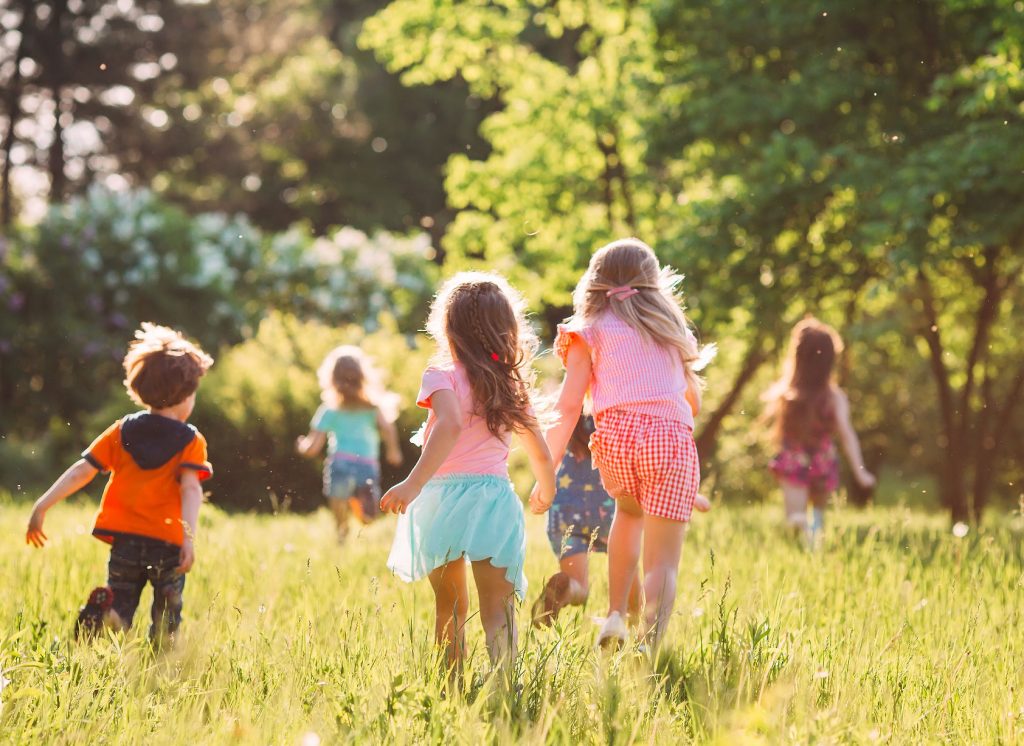
We hope this post eases your worries and helps you learn how to prepare your child for kindergarten, using our Kindergarten Readiness Checklist! Learn more about our customer-favorite Preschool and Kindergarten Prep courses by clicking either image below!
These colorful, exciting courses are easy to teach and keep a child’s interest with bright images and fun games. Children learn letters and their sounds, shapes, numbers, how to hold a pencil, and much more.
You may also like . . .

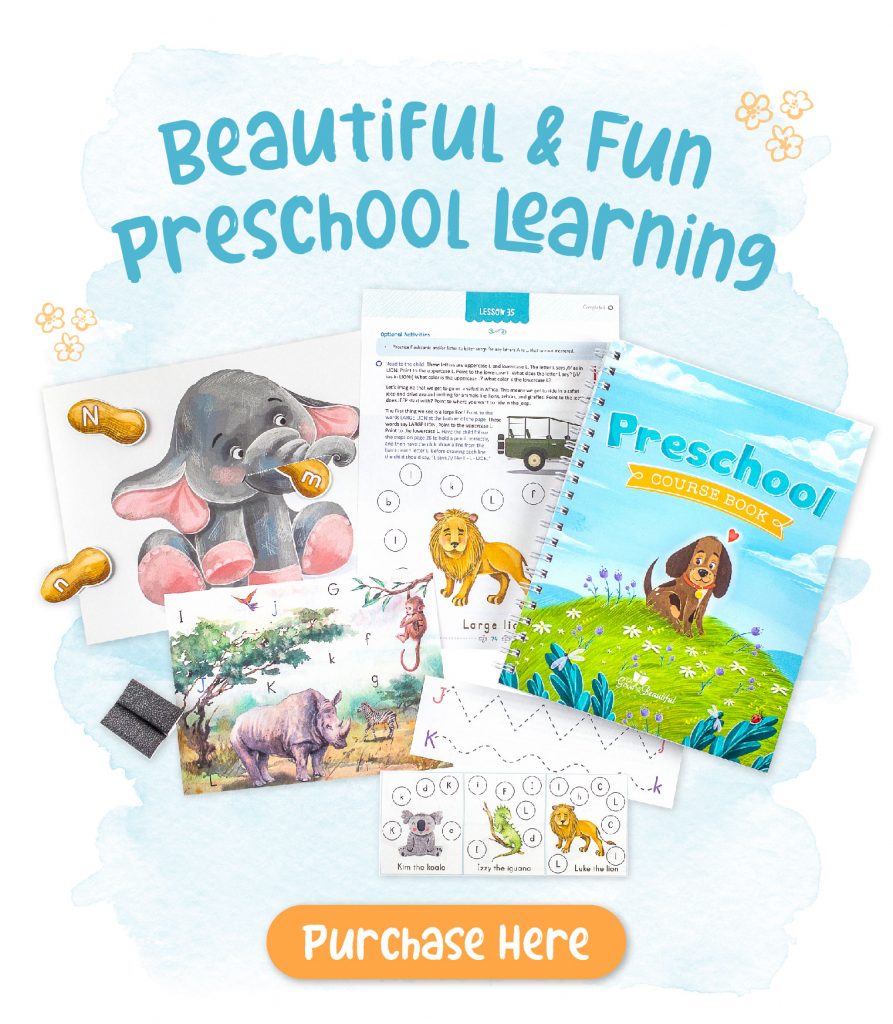
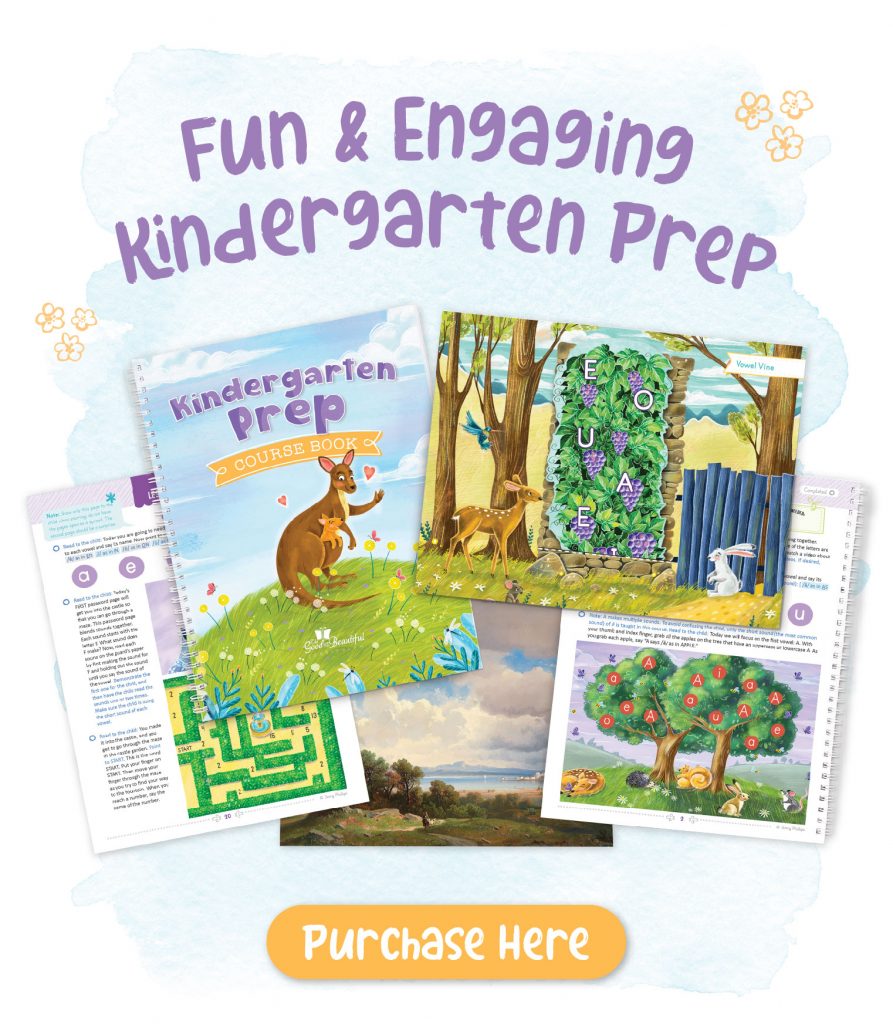
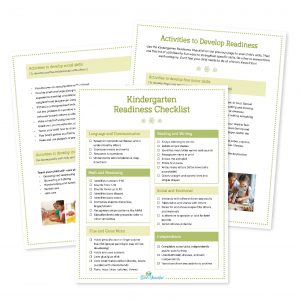
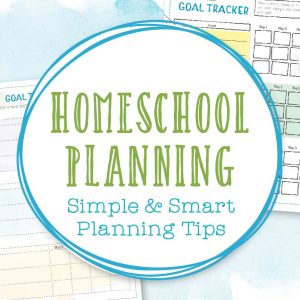
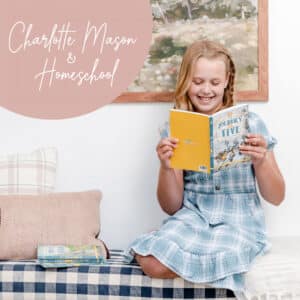
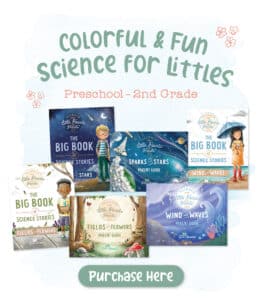



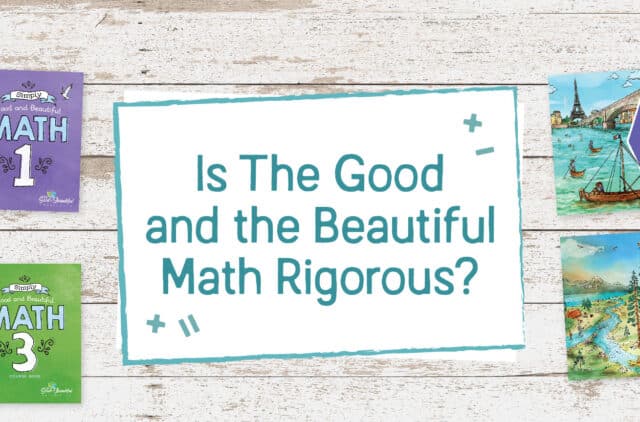
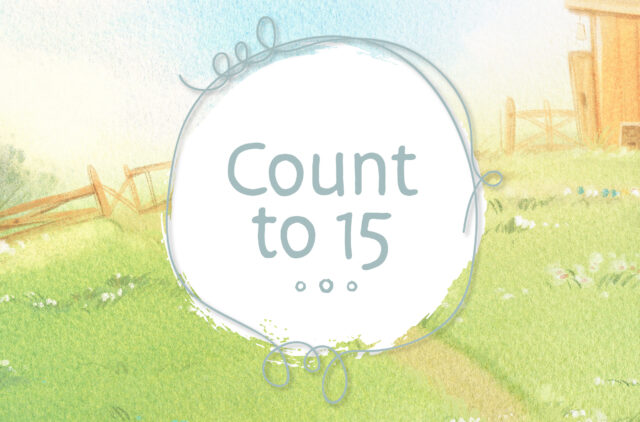
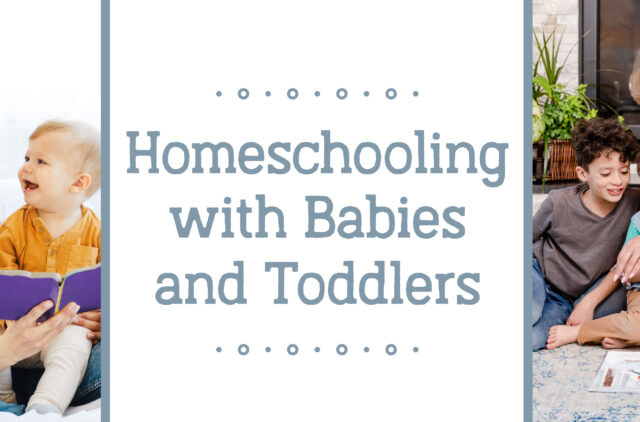
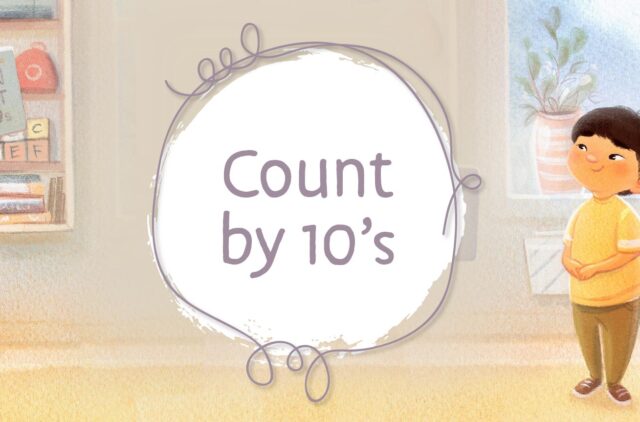
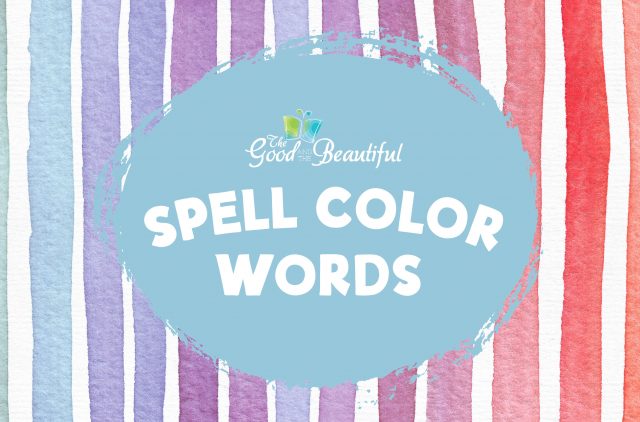

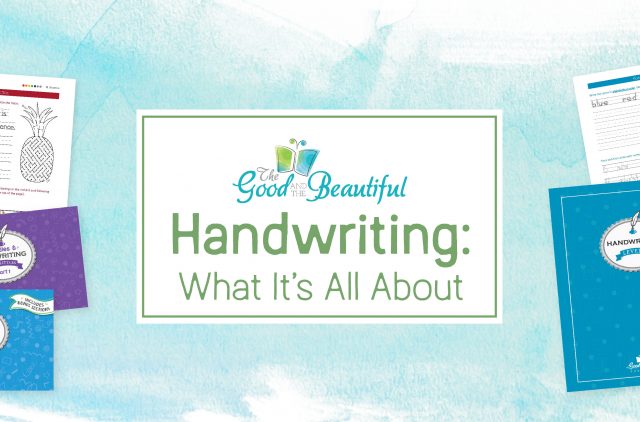
Comments
I’ve been going back and forth with starting my couple of littles! Your download is so helpful and really solidified that one is for sure ready. Thank you!
I love how helpful this is!
Thank you for sharing! My son is 5 and we are starting kindergarten LA, but he is struggling in reading.
We both enjoy science for little hearts and hands and Math level 2 (he is very advanced in Math, level 2 is even pretty easy for him).
I wrote extended review of Fields and Flowers, which we already have finished.
We also are using some level 1 and 2 readers as read aloud, as he can’t read yet.
This has been very helpful, my eldest is about to turn 5 and getting ready to begin our homeschool adventure soon! Thank you!
I love learning about the Kindergarten Readiness Checklist.
This is great for knowing what I need to know for preparing my son for Kindergarten.
I like seeing the skills my child needs know before entering into Kindergarten. The guidelines & checklist are great.
This is a very informative post and I appreciate all the detailed provided.
Thank you so much!